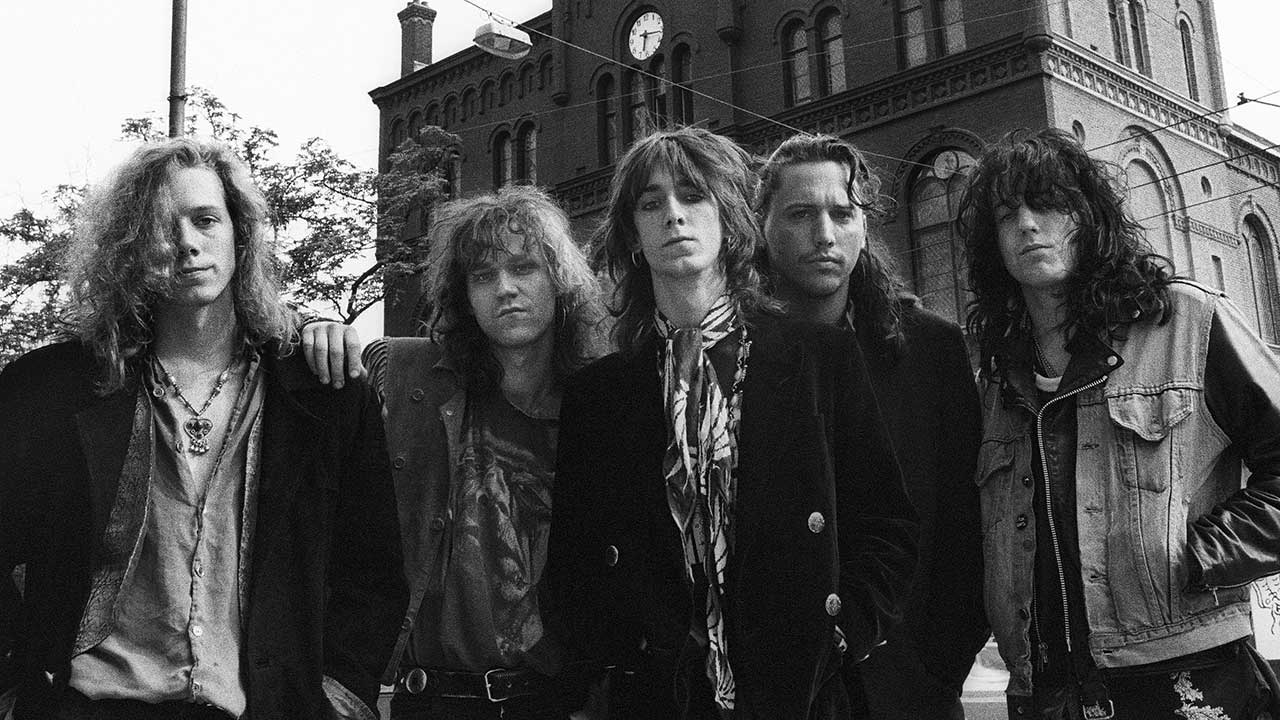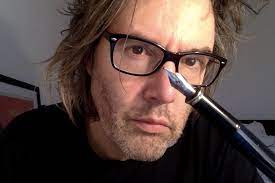"We still laugh about it now,” says The Black Crowes frontman Chris Robinson, relaxing at his home in California. “We were one of those local bands that really wasn’t very popular. If we wrote a riff at sound-check then we played it that night, we’d play the song on the spot, just throw it in there. People weren’t so keen on that sort of thing.”
Even their A&R man stumbled upon them by accident. George Drakoulias was in Atlanta scouting other bands for the A&M label. He happened to be nursing a drink in a bar when he asked the stranger next to him if there were any rock bands in town worth hearing.
“And someone mentioned Mr Crowe’s Garden, as we were back then,” Chris recalls. “Typically, we had no shows booked while he was in town, but we had a gig booked in New York coming up, third on the bill of five bands at Drums. George came down and he said we were all right. And I guess we were. He kept coming down to Atlanta after that and we kept working on demos.
"All these bands in Atlanta were working hard on their repertoires and their stage shows, and we were the worst – no work ethic, non-career minded, no local following. But for some reason we always had people flying in from LA or New York to see what we were doing.
"We just thought they’ll take us to dinner. We’d order eight pitchers of margaritas and by the time the gig started we were pissed out of our heads and barely able to finish the show. They’d fly back home and we thought we’d got one over on them.”
Dining on someone else’s dime and playing live intermittently enabled the band to focus on making what would become their debut album for the American label. Yet while they were recording Shake Your Money Maker, they hadn’t even signed the deal. And George Drakoulias hadn’t produced a full album before, so he was also feeling his way. They hunkered down in a studio and wrote and rehearsed for days at a time.
“That really was when we built up our relationship with George,” says Chris. “We were kids, we had a few guitars, a couple of amps… We didn’t have a budget for food, we kind of ate whatever George didn’t finish. It was fantastic, though, a real adventure for us. We were thinking, we’re making a record, then we’ll get a deal and we’ll try to get us much out of this experience as possible and then figure out what we’re going to do with our lives. It seemed to us that you had to be an asshole to get on MTV or in showbiz. We weren’t interested in that so much.”
“It was just like that,” agrees the other Robinson brother, guitarist Rich. “The studio was a place where Brendan O’Brien had worked. He was just our engineer then, which is very strange when you think about it now. I moved into my 20s in the middle of recording our first album – as good a way to start a new decade as any.”
Rich had come up with a song that would make the final cut of the album, the elegiac She Talks To Angels (which, along with Jealous Again, the band deconstructed for 2010's Croweology collection).
“She Talks To Angels has always held up for us,” says Rich, “That was the first song I wrote. And when George heard it he really liked it. Chris wasn’t sure, but George insisted, said we needed it on the record. Chris likes to move on, he doesn’t tend to dwell on the past, and I think that song had been around a while by the time we got to making the album and he just wanted to hear new stuff.”
“It’s a George record,” Chris says, but not unkindly. “We were so excited and eager, and George was very methodical – thank God. He made a very radio-friendly record. It took a long time because we weren’t used to the studio, we weren’t used to things being perfect. But we were thinking, this is how it’s done so this is how we’ll do it. Though when we bought our freedom with that record selling millions of copies in the States, we never made a perfect record again.”
Both Robinsons agree that the album still stands up decades later, even if they can hear the band’s naivety between the grooves. “We still play pretty much everything from that record,” says Chris. “The only song that’s been lost is Struttin’ Blues. Seein’ Things is still a band favourite and a song that we'd probably play twice a week if we were on the road. I hear songs on the radio like Jealous Again and I like it. It’s still a big part of our show. It’s an iconic song for us, as is Twice As Hard. I still love to sing Sister Luck when we do it.”
“Though it was Sister Luck that was really hard to capture in the studio,” Rich remembers. “As a band we hadn’t played much together, and trying to find that dynamic was really hard for us on some songs. We recorded Sister Luck several times just trying to get it really right. But it holds up as an album, I think. I always view our records as what they meant at the time.
"I think when you’re that young and things happen that fast, you really wear your influences on your sleeve. And the only frame of reference you have is wanting to make music that moves people as much as the music that I loved moved me. That was always the goal. So to me it was the best possible record we could’ve made then. I still think the songs are pretty great.”
So did the record-buying public. Shake Your Money Maker sold more than seven million copies, and on the back of it the band went off on a world tour that would take them away from Atlanta for almost two years, playing more than 350 shows.
“I remember us coming over to London to play the Marquee club, and thinking the queue outside was for someone else,” Rich laughs. “The audiences over there were unbelievable compared to America. We played the Marquee, and then went out opening for the Dogs D’Amour. Then months later, at the end of the Shake Your Money Maker tour, we came back to London and did Hammersmith Odeon.
"That sort of wrapped up it all up. We came full circle, and then we got on the plane and finally went home."
This feature originally appeared in Classic Rock 150, in September 2010. The 30th Anniversary Edition of Shake Your Money Maker is out now.

